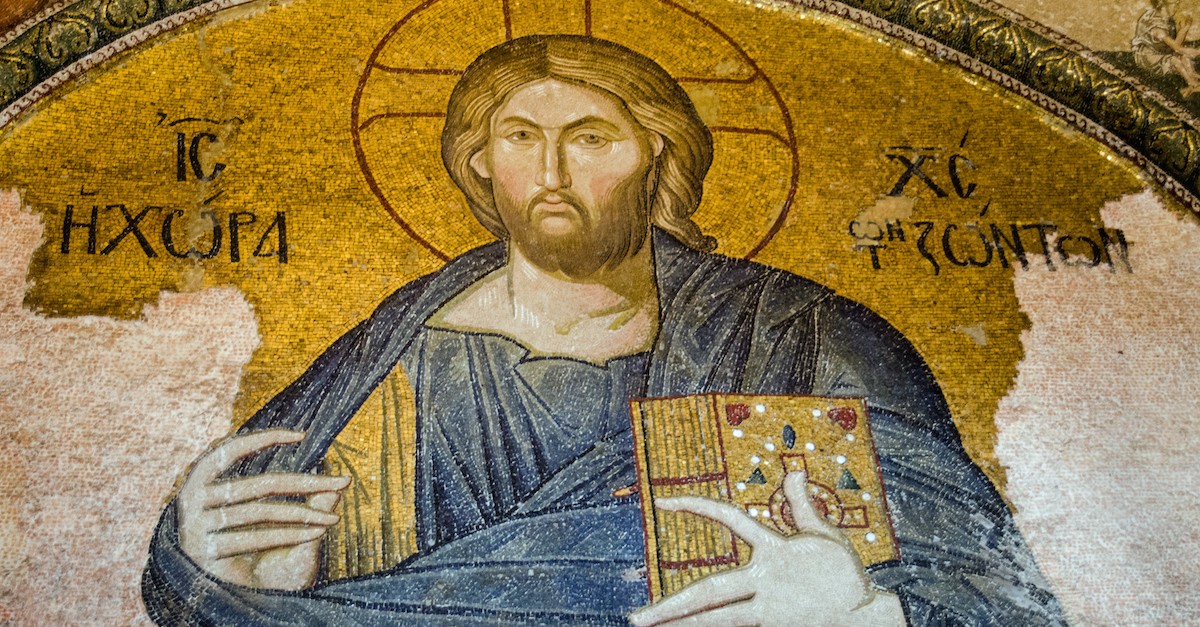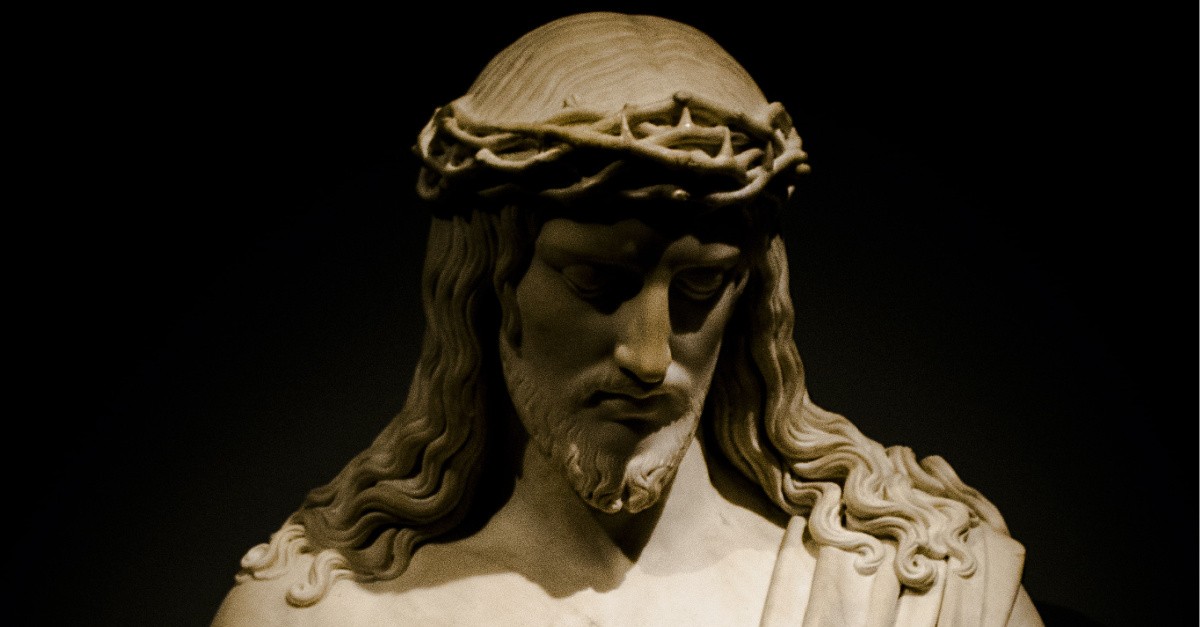
Unfortunately, there are many ancient heresies that are still prevalent in the modern day. We often don’t think of ancient heresies still being around in the modern day, yet there are many still out there.
Despite the early church and Christians throughout time trying to erase these heresies, they have still persevered. It is a sad reality to know that these ancient heresies have continued to be believed throughout time because these false beliefs have caused many to not place faith in Jesus.
Not only have these heresies caused people to not place faith in Jesus, but they have also caused much misinformation to be spread about Jesus. As believers, it is our responsibility to be able to address these heresies and point others to the truth about Jesus.
Clearly, these heresies are still going on in the present day, and we need to be aware of them. By being aware of them, we are going to be better equipped to demolish them. Ignorance is not bliss, as we need to be prepared when we are faced with ancient heresies.
Also, by knowing about ancient heresies and how they are prevalent today, will help us take our stand against them. Many false belief systems contain heretical ideas, and they still practice these.
Cults, which are offshoots of Christianity, are most well-known for containing ancient heresies within their beliefs.
Heresies are never good as they go directly against God and the Bible. We don’t need to overlook these issues because they probably will continue to be prevalent until they are effectively done away with.
Once you are aware and knowledgeable about ancient heresies, it will be easier to spot them. You might notice a few people you know believe in ancient heresies. If this is the case, help point them to Christ and share the truth of the Bible with them.
The Bible contains everything we need to know, and it can help us fight against false heresies (2 Timothy 3:16-17). False heresies will only continue to do more damage until they are dismantled.
Through educating ourselves, we will be better equipped to recognize these false heresies in the modern day.
Photo Credit: ©Getty Images/Black Quetzal

1. Arianism
One ancient heresy still prevalent today is Arianism. Arianism is an ancient heresy that denies the divinity of Christ. It was started by a man named Arius. He was an Alexandrian priest, which shows us how much of an influence he had on the people during his lifetime.
Arius was alive from AD 250 to 336. From these dates, we can see that Arianism has been going on for a very long time and doesn’t seem to be slowing down anytime soon.
As mentioned, Arianism denies the divinity of Christ, and it does this in a number of ways. For one, Arianism teaches that Jesus is not of the same substance as the Father.
In this way, Arianism taught that Jesus was created by the Father instead of them being equal, as the Bible tells us. The Bible clearly says Jesus is God in the flesh (John 1:14). To deny Jesus’ divinity is to deny the Lord Himself and to call Him a liar.
This ancient heresy is still prevalent today in the form of the Jehovah’s Witnesses. They deny the divinity of Christ and teach that Jesus was created by Jehovah.
The start of the cult Jehovah’s Witnesses started in the 1870s by a man named Charles Taze Russell. Despite the 1870s being over a thousand years after the start of Arianism, it is still in practice today. As believers, we need to do all we can to help these individuals know the truth about Jesus.
Photo Credit: ©iStock/Getty Images Plus/brebca

2. Gnosticism
A second ancient heresy still prevalent today is Gnosticism. Gnosticism taught that the world and everything was created by a deity, yet the world and everything in it is ruled by the demiurge. The supreme deity, according to Gnosticism, is the Monad, who created everything.
They deny God as being the supreme authority, as well as they deny the divinity of Christ. Gnostics view Jesus as a special or enlightened person, who possessed esoteric knowledge.
Gnosticism teaches that Jesus made it possible for humans to have redemption of their human spirit. Gnostics deny that Jesus had a human body because they saw the physical as being bad, but anything spiritual as good.
In other words, they only viewed Jesus as a spiritual being rather than being fully God and fully man. John dismissed this claim when he says, “That which was from the beginning, which we have heard, which we have seen with our eyes, which we have looked at and our hands have touched — this we proclaim concerning the Word of life” (1 John 1:1). By saying this, John dismisses the idea that Jesus was only spirit.
Gnosticism is alive and well today in the form of the New Gnosticism. This is connected with the New Age Movement. Gnosticism has sneaked its way onto the scene for many years in the writings of psychology and philosophy.
Those who practice Gnosticism don’t refer to themselves as Gnostics any longer, as many refer to themselves as “seekers.” As Christians, we need to help these seekers find what they are actually looking for — the true Jesus.
Photo Credit: ©iStock/Getty Images Plus/aeduard

3. Montanism
A third ancient heresy that is still prevalent today is Montanism. Montanism is a heresy that became popular in the late second century AD. This movement was started by Montanus and he stressed an unhealthy amount of importance on speaking in tongues, prophecy, and miraculous gifts.
He saw that his teachings were more important than the church’s and the Church Council declared his teachings to be heresies. The church fathers would not allow this teaching to go on as Montanus was making himself higher than God Himself.
Montanus claimed he had the gift of prophecy and that the Holy Spirit was directly speaking through him. He believed that he was the embodied person of the Holy Spirit. As we know, he was not.
The Holy Spirit is spirit, and He did not embody Himself in the person of Montanus. Montanism is a direct heresy to the church and the Trinity, especially the Holy Spirit. With this in mind, it is important to know how this heresy is still prevalent today.
Montanism is still prevalent today as it has many connections to Pentecostal extremists as well as the Charismatic movement.
Not all Pentecostal churches are connected to this heresy in the modern day; however, the Pentecostal churches that are connected are the ones that claim you have to speak in tongues or prophecy in order to be truly saved.
The salvation taught by Montanism is not correct either; therefore, to be dogmatic that anyone would be saved who follows this movement would be an extreme stretch.
Photo Credit: ©GettyImages/skaman306

4. Monophysitism
A fourth ancient heresy still prevalent today is Monophysitism. Monophysitism is the heresy that taught Jesus had two natures, human and divine, but only one will. In other words, Monophysitism taught that Jesus was only divine and did not have a human nature.
They rejected the hypostatic union and never acknowledged that Jesus was fully man at the same time as being fully God. This is a heresy that was addressed by the Sixth Ecumenical Council in 680-681 and was condemned.
Monophysitism traces its roots back to Apollinarianism, which taught that Jesus’ divinity overtook human nature. In this way, Jesus’ divinity was “too strong” or “too powerful” for Him to become both man and God.
This is a heresy because Jesus was both fully man and fully God when He walked the earth, and He always will be both fully man and fully God. He will never and has never lost His divinity or His humanity.
In the modern day, we see Monophysitism in the Coptic Orthodox Church. The Coptic Orthodox Church isn’t a completely heretic church; however, they do hold to this ancient heresy. Rather than viewing Jesus as fully God and fully man, they only view Him as having one nature, the divine nature.
The Coptic Orthodox Church is found in Egypt, which can make it hard for Christians to reach. However, believers can reach out to this church to help them know the truth about Jesus through mission work.
There again, the Coptic Orthodox Church believes in this heresy, but it doesn’t mean their entire belief system is opposed to the Bible.
Photo Credit: ©Unsplash/Alessandro Bellone

5. Pelagianism
A fifth ancient heresy that is still prevalent today is Pelagianism. Pelagianism is best known for its denial of sin. Rather than believing in the human sin nature, Pelagianism denied the belief of original sin.
Since Pelagianism teaches that humans are not born with a sinful nature, it believes a person does not have to be saved by Jesus. Instead, Pelagianism believes that a person can earn salvation in other ways since they deny human beings possessing the original sin nature.
Pelagius was the man who started this heresy, and he had many debates against Augustine. Augustine stood for the truth of the Bible and debated with Pelagius, stating that mankind could not obtain salvation by any other means except through placing faith in Christ.
Pelagianism is still being practiced today, although it is not as apparent as it once was. As was the case with other ancient heretics being still present in the modern day, Pelagianism is hiding in plain sight.
In the modern day, Pelagianism is seen in the church and outside the church. There are many “Christian” churches that deny the reality of sin in the present day.
Outside the church, many secular and irreligious individuals don’t believe in the original sin nature. Within the modern day, there is a huge moment among individuals that everyone is relatively good or inherently good.
This goes against the Bible because we are all born into sin and we all freely sin (Romans 3:23). Despite the worldview of the world today, people are not inherently good because everyone has the sin nature, and it is something we cannot escape during our earthly lives.
Ancient heresies are still prevalent today, including Arianism, Gnosticism, Montanism, Monophysitism, and Pelagianism. As believers, we need to be aware of these heresies and do all we can to help people know the truth.
For further reading:
Historic Heresies Related to the Nature of Jesus
What Did Ancient Heresies Teach about Jesus?
3 Reasons We Should Stop Calling People Heretics…Unless They Are
Photo Credit: ©iStock/Getty Images Plus/kevron2001

Originally published Thursday, 31 August 2023.
